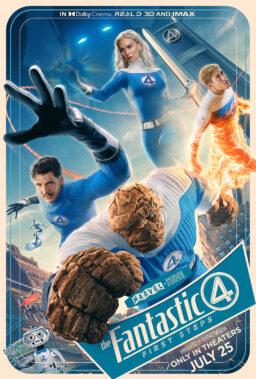Cannes, France – These last few days at the Cannes Film Festival always seem devoted to handicapping the prize ceremony. The critics and cineastes gather in the Blue Bar, that jam-packed cafe under the very awnings of the Palais du Festival, and speculate on the winners, which will be announced Friday afternoon.
The best guess so far is that the festival’s Grand Prix will go to “Kagemusha,” the beautiful, epic samurai drama by veteran Japanese director Akira Kurosawa. Two considerations have to be taken into account: that the film is, indeed, one of the best shown here this year and that since it is the first Cannes entry by a director who, at 70, is considered one of the greatest living film artists, not to give it the Grand Prix would amount to a minor scandal.
There has been a very favorable reception, however, for “Mon Oncle d’Amerique,” the new film by Alain Resnais, whose “Hiroshima Mon Amour” helped launch the French New Wave some 20 years ago. The Resnais film is one of my own festival favorites – an unlikely combination of pure intellectualism, middle-class romance and quiet farce – and in a festival that generally has been disappointing, it’s one of the few films people seem somewhat worked up about.
The best guess seems to be that the Resnais will win the Special Jury Prize. The awards for best actor and actress, according to gossip up and down the Croissette, will go to Peter Sellers for “Being There,” and perhaps to Nathalie Baye, the soft-spoken heroine of Bertrand Tavernier’s “La Semaine des Vacances,” about a schoolteacher in Lyon.
What’s left? Probably the critics’ prize to Sam Fuller’s World War II epic, “The Big Red One,” and the Camero D’or, voted on by the critics here and given to the best film not in official competition, to Ira Wohl’s “Best Boy,” a documentary about his retarded cousin that is already drawing big audiences in the United States.
What everybody seems certain about is that two of the most-awaited films in this year’s festival are the most disappointing: Federico Fellini’s disjointed and self-indulgent “La Città Delle Donne” (“City of Women“) and Jean-Luc Godard’s “Slow Motion,” his first feature film in seven years.
The Fellini I’ve already written about. The Godard seems to be a reaction to his own radical filmmaking experiments in the late 1960s and early 1970s, when a Godard film might be hated but was rarely boring. He went for more and more extreme effects, combining poetry, imagery and endless political speeches in those days. But now he is back with an essentially very conventional film about the lives of three Parisians, starring (once again) Nathalie Baye and Isabelle Huppert, the two French actresses who seem to be in half of this year’s films.
Another film that’s generated a lot of heat in these closing days of the festival is Dennis Hopper’s Canadian production, “Out of the Blue,” a harrowing drama I admire very much. Hopper’s reputation as a director was made here in 1969, with “Easy Rider,” and in the 1970s he became a cult favorite of European directors like Germany’s Wim Wenders, who starred him as “The American Friend.”
Now Hopper is back with, and in, a film of his own. “Out of the Blue” stars Linda Manz, the small, tough and cynical teenage girl of “Days of Heaven” and “The Warriors,” as a 15-year-old punk rocker whose father (Hopper) is in prison, and whose mother (Sharon Farrell) is a wise-talking waitress. The kid’s life has been shaped by a traumatic event: While she was riding with her drunk father in a semi, the truck slammed into a school bus and many children were killed.
While her father serves time for the accident, the young girl grows up more or less on her own, taking dead rock heroes like Elvis Presley and Sid Vicious as her idols. She hangs around bowling alleys, skips school, runs away into the world of street people, junkies and hookers, and after her father’s release from prison she grows increasingly disoriented and disturbed until the film’s violent conclusion. It’s a very difficult role, brilliantly performed by Manz, and the film has a raw energy and life to it that most films this year seem to be lacking.
Why has this festival, in general, seemed somewhat lackluster? Maybe because there haven’t been really ambitious new films by young, fairly unknown filmmakers. So many of the entries this year have been from directors whose names are trademarks – Fellini, Kurosawa, Fuller, Godard, Resnais – almost suggesting the kinds of films we can expect.
Kurosawa’s film was a masterful exercise, and Resnais’ was audacious (he developed a theory of behaviorism by paralleling the lives of men and laboratory rats), but no film this year has had the electrifying impact of such past entries as Coppola’s “Apocalypse Now,” or Bertolucci’s “1900” (1977) or the scandalous effect of Oshima’s “In the Realm of the Senses.”
People seem to have the feeling that they’re going home having seen a lot of good and interesting films, but without having witnessed any revelations. And revelations are what you’re hoping for when, as Pauline Kael so memorably put it, the lights go down low and all your expectations are focused up there on the screen.











